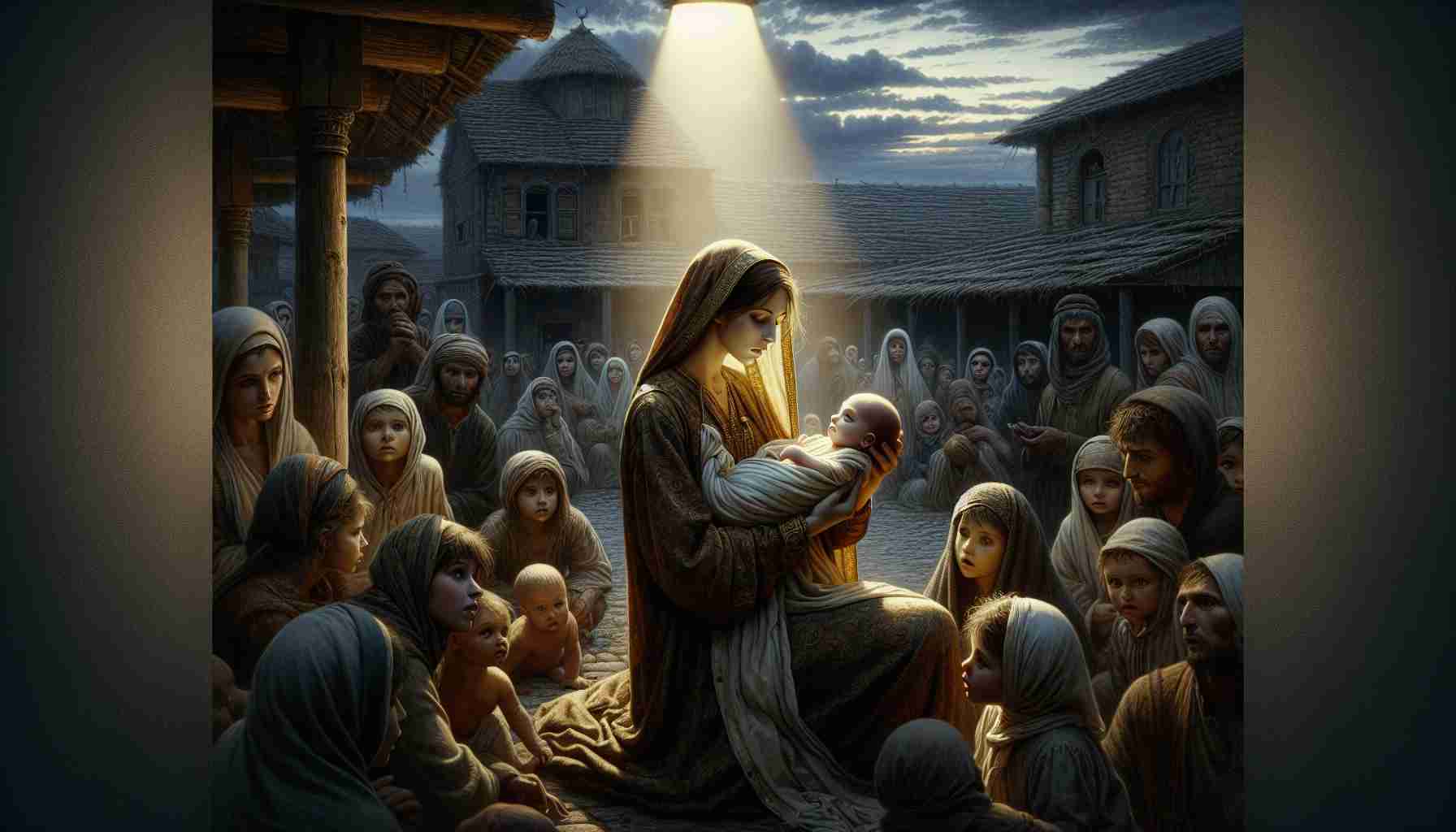

It was early morning when my father shoved open the door, pale as death. “The son of Mary—he speaks,” he breathed. We ran through the narrow alleys of our village, past fig trees and stone walls, to the house of Maryam.
Everyone had heard the rumors. Maryam—Mary, the daughter of ‘Imran—had returned from the east with a child in her arms, though no man had married her. People whispered terrible things. “How could she bring such shame upon us?” they'd said. Even I, a boy of twelve, had felt afraid.
But now we stood in silence, peering through the crowd into the shaded courtyard. Maryam sat quietly under a date palm, her head lowered, lips unmoving. Before her, cradled in swaddling cloth, lay her newborn son.
Then it happened.
The child—newborn, helpless, eyes barely open—spoke.
“Indeed, I am the servant of Allah ﷻ,” he said. His voice was clear. Not a baby’s voice, but not fully that of a man either. It rang out, strong and certain. “He has given me the Scripture and made me a prophet.”
Every breath caught. People blinked, some staggering back. My father clenched my shoulder.
The child continued, “And He has made me blessed wherever I am, and enjoined upon me prayer and charity as long as I live… and made me dutiful to my mother.”
I didn’t understand all his words then, but I remember how they made me feel—like light cutting through a storm. Isa—peace be upon him—he had no father, yet there he was speaking like a prophet. A sign. A mercy.
As I grew older, and Isa grew with me, we saw miracles that made men tremble. He healed the blind with a touch. Once, in the village square, a man who had been crippled his whole life struggled to reach him. Isa placed his hand on the man’s shoulder and whispered a prayer. “By Allah’s leave, rise.” And the man walked.
Later, when my own uncle died suddenly during a hot spell, we laid him in the shade, wrapped and silent. Isa came quietly, knelt beside the bier, and whispered. The wind hushed. And then my uncle sat up.
People fell to their knees.
But never once did Isa ask for worship. “I am a messenger,” he would say. “Worship Allah ﷻ, my Lord and your Lord.” His voice never wavered.
Still, some called him more than what he was. Some wanted him to be their king, their god.
“Do not raise me beyond the truth,” he warned, “for I am a servant.”
Now I am old, and the world has changed much. Some debate who Isa was. But I remember that day—a newborn speaking. A child declaring the oneness of Allah ﷻ with words purer than any scholar’s.
I remember how truth felt that day.
Like a fire in the chest.
Like water after drought.
It was early morning when my father shoved open the door, pale as death. “The son of Mary—he speaks,” he breathed. We ran through the narrow alleys of our village, past fig trees and stone walls, to the house of Maryam.
Everyone had heard the rumors. Maryam—Mary, the daughter of ‘Imran—had returned from the east with a child in her arms, though no man had married her. People whispered terrible things. “How could she bring such shame upon us?” they'd said. Even I, a boy of twelve, had felt afraid.
But now we stood in silence, peering through the crowd into the shaded courtyard. Maryam sat quietly under a date palm, her head lowered, lips unmoving. Before her, cradled in swaddling cloth, lay her newborn son.
Then it happened.
The child—newborn, helpless, eyes barely open—spoke.
“Indeed, I am the servant of Allah ﷻ,” he said. His voice was clear. Not a baby’s voice, but not fully that of a man either. It rang out, strong and certain. “He has given me the Scripture and made me a prophet.”
Every breath caught. People blinked, some staggering back. My father clenched my shoulder.
The child continued, “And He has made me blessed wherever I am, and enjoined upon me prayer and charity as long as I live… and made me dutiful to my mother.”
I didn’t understand all his words then, but I remember how they made me feel—like light cutting through a storm. Isa—peace be upon him—he had no father, yet there he was speaking like a prophet. A sign. A mercy.
As I grew older, and Isa grew with me, we saw miracles that made men tremble. He healed the blind with a touch. Once, in the village square, a man who had been crippled his whole life struggled to reach him. Isa placed his hand on the man’s shoulder and whispered a prayer. “By Allah’s leave, rise.” And the man walked.
Later, when my own uncle died suddenly during a hot spell, we laid him in the shade, wrapped and silent. Isa came quietly, knelt beside the bier, and whispered. The wind hushed. And then my uncle sat up.
People fell to their knees.
But never once did Isa ask for worship. “I am a messenger,” he would say. “Worship Allah ﷻ, my Lord and your Lord.” His voice never wavered.
Still, some called him more than what he was. Some wanted him to be their king, their god.
“Do not raise me beyond the truth,” he warned, “for I am a servant.”
Now I am old, and the world has changed much. Some debate who Isa was. But I remember that day—a newborn speaking. A child declaring the oneness of Allah ﷻ with words purer than any scholar’s.
I remember how truth felt that day.
Like a fire in the chest.
Like water after drought.